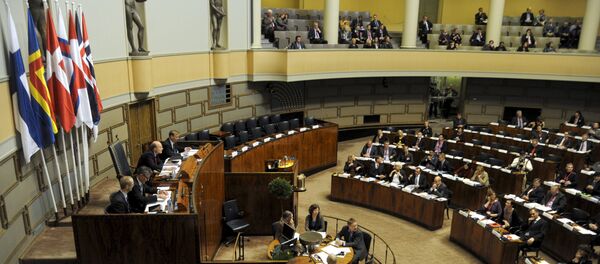The new regulations come into force just over a week after over 30 people were killed in a series of suicide bombings in Brussels' Zaventem airport and the city's Maelbeek underground station.
"With last week's horrific attacks in Brussels still fresh in our minds, it feels very good that from today onwards, we have new, tougher legislation in place, which gives the security services more muscle to prevent terrorist crimes in Sweden," Prime Minister Stefan Löfven told Expressen as he unveiled the toughening of the legislation alongside a pronounced increase in funding for both security forces and border troops.
Sweden's security police SÄPO has previously identified at least 300 people as having left Sweden since 2013 to join the militant jihadists in the Middle East. No less than 135 are believed to have returned to Sweden and currently rank among the biggest threats to the country.
Meanwhile, Sweden's National Crime Prevention Council (Brå) recently unveiled new statistics that could have an explosive effect on the debate about where Sweden is heading. According to Brå, deadly violence in Sweden rose sharply last year: 112 murder cases were reported. The Council itself has abstained from further comment, citing that it is yet to be determined, whether it is a nasty new trend or merely a coincidence.
Recently, Sweden has faced a number of prominent crimes, many of which made the front page in the local newspapers. Among the recent high-profile cases is the murder of Alexander Bengtsson, a young politician from the center-right Moderate Party and an avid blogger, who was reportedly found dead in a burnt-out car earlier this week.




